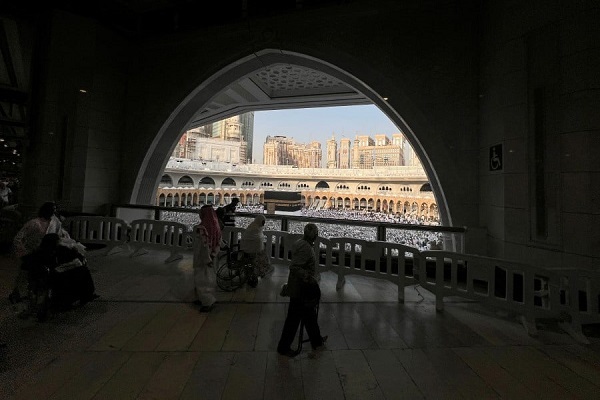Saudi Authorities Clear Mecca of Over 300,000 Unregistered Pilgrims

The annual pilgrimage is a significant event that attracted over 1.8 million Muslims last year, as per official data. Managing the large crowds is a crucial aspect of the event.
The individuals who were recently denied entry to the holy city, which houses the Grand Mosque, comprised 153,998 foreign nationals. These individuals had arrived on tourist visas instead of the mandatory Hajj visas, as reported by the official Saudi Press Agency.
Furthermore, Saudi authorities have identified and removed an additional 171,587 individuals residing in Saudi Arabia but not in Mecca, who lacked the necessary Hajj permits, APF reported.
The Hajj is a religious duty that all Muslims who are able must perform at least once. The pilgrimage involves a series of rituals conducted over a minimum of four days in Mecca and its surrounding areas in western Saudi Arabia.
Read More:
Many individuals attempt to complete the rites through unofficial means due to the high costs associated with obtaining formal permits and travel packages, coupled with the limited quotas for pilgrims from each country.
Saudi Arabia, home to Islam’s holiest shrines in Mecca and Medina, earns billions of dollars annually from the Hajj and other pilgrimages, known as Umrah, conducted throughout the year.
Past Hajj events have seen large crowds become hazardous, most notably in 2015 when a stampede during the “stoning the devil” ritual in Mina, near Mecca, resulted in up to 2,300 fatalities in the most deadly Hajj disaster to date. This has led to increased vigilance from Saudi officials to prevent unregistered pilgrims from participating.
As of Saturday, over 1.3 million registered pilgrims have arrived in Saudi Arabia for the Hajj, according to Mecca regional authorities.
Source: Agencies



